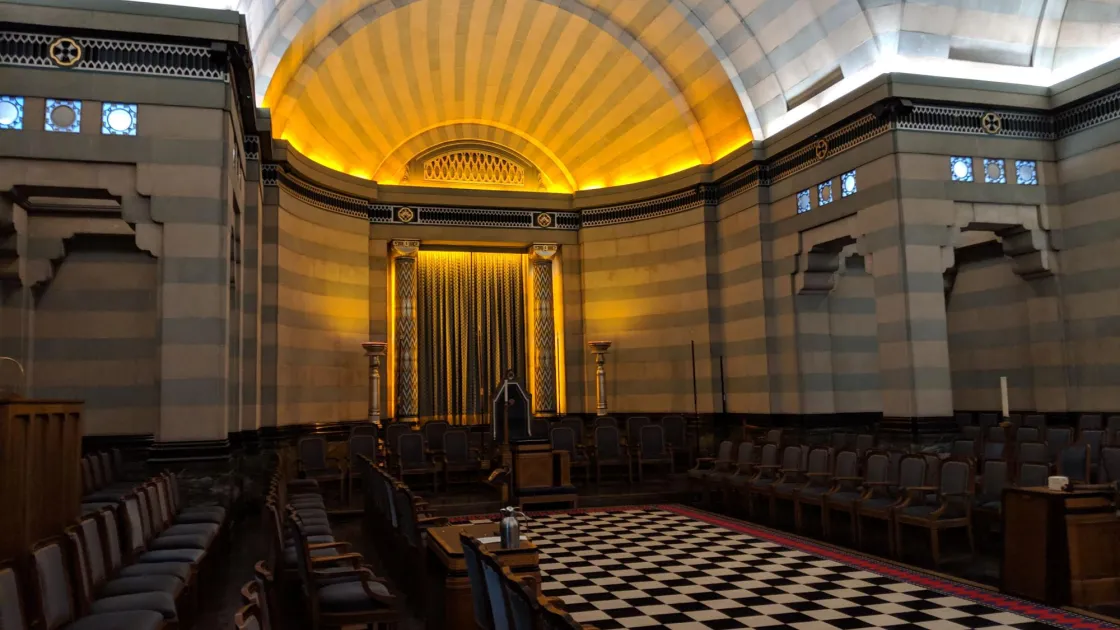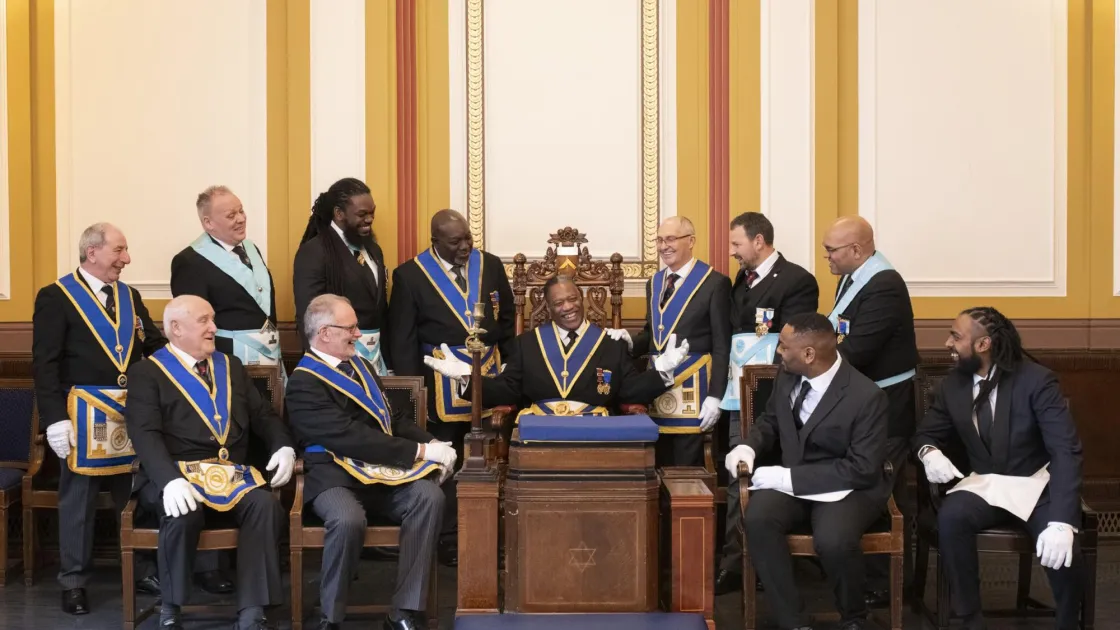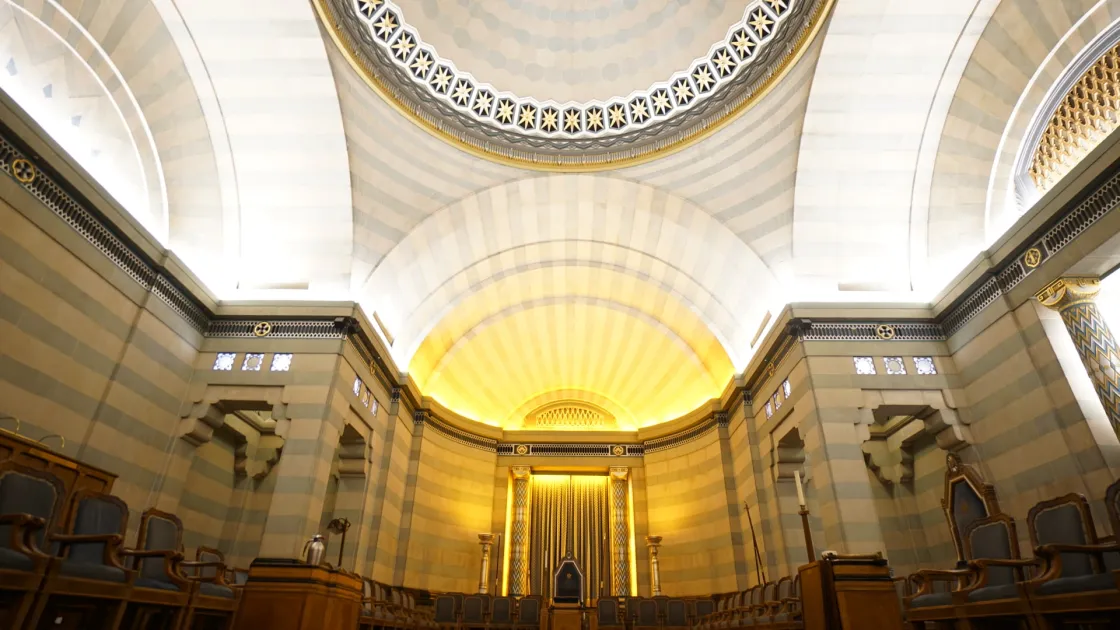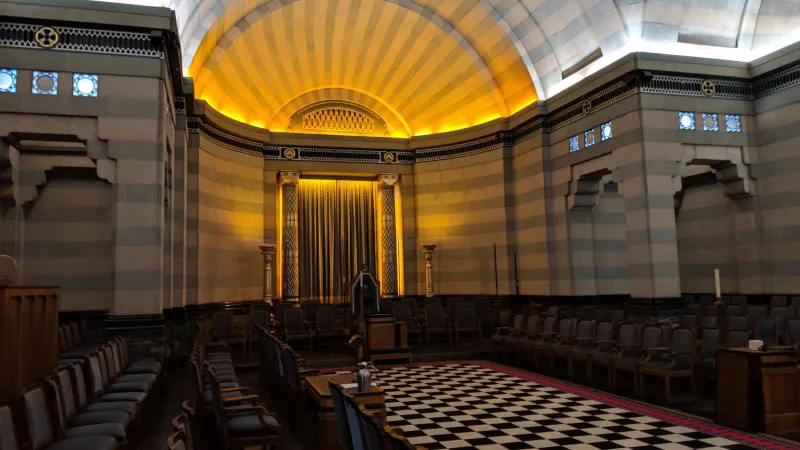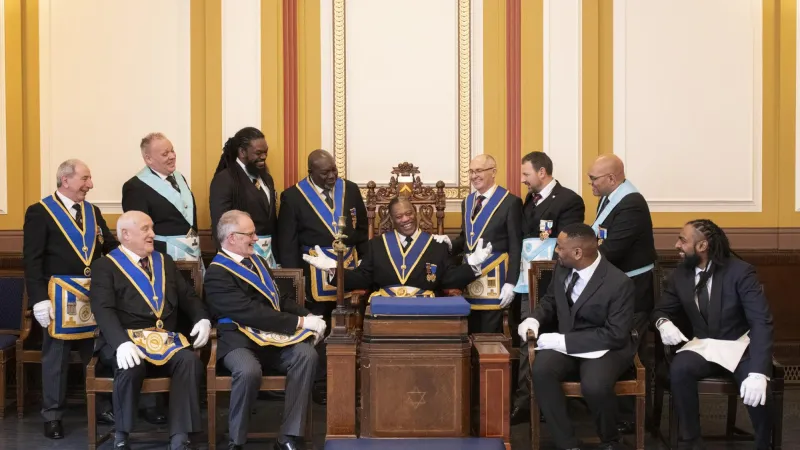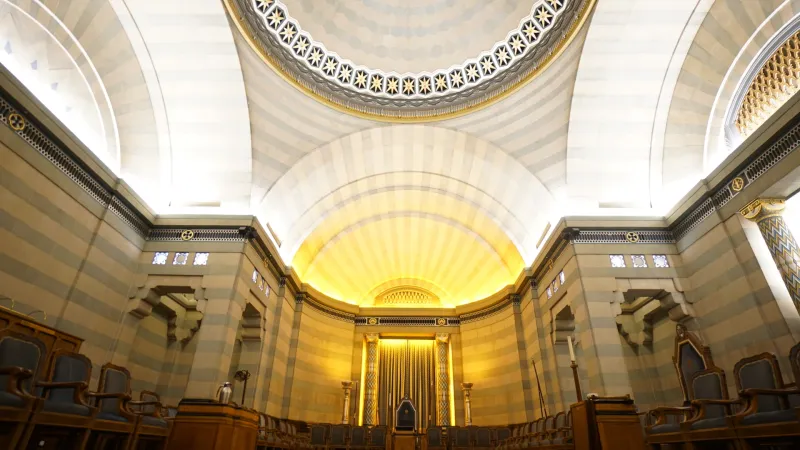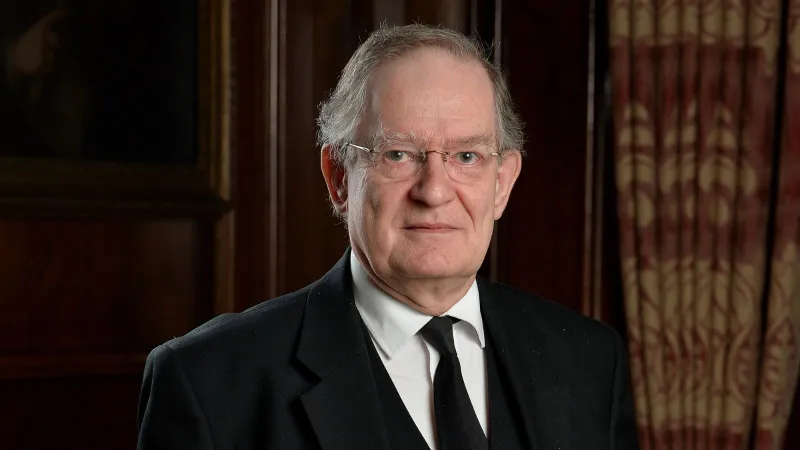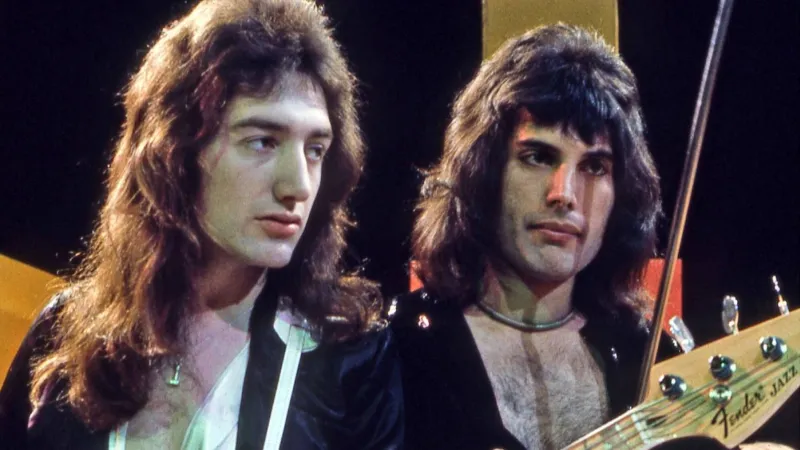One of the first steps in beginning your Masonic journey is understanding the Lodge, one of the cornerstones of Freemasonry. By the end of this blog, you'll have a clearer understanding of what a Lodge is, making it easier to decide whether Freemasonry is the right path for you.
The United Grand Lodge of England (UGLE), the governing body of Freemasonry in England, Wales, the Channel Islands, the Isle of Man, and overseas Districts, oversees more than 7,000 Lodges, including 87 University Scheme Lodges open to students and those connected to universities.
A Lodge is a community of individuals who share similar values, a sense of purpose, and a dedication to making a positive impact on society. Through timeless traditions and ancient ceremonies, Freemasonry provides an opportunity to explore your potential through improved self-knowledge and confidence on an enduring foundation of ethical and moral values, united by the core values of Integrity, Friendship, Respect, and Service. Within the Lodge, members collaborate to support local charitable causes and develop practical solutions to assist those in need.
What Happens in a Lodge?
A Lodge Room or Temple, is thoughtfully arranged with designated seating for Lodge Officers. Each Officer plays a key role in ensuring the Lodge operates effectively. Lodge meetings are typically divided into two halves, with an agenda shared beforehand in a formal notice called a Summons.
In the first half of the meeting, administrative tasks are addressed. Discussions typically cover Lodge news, proposing new members, financial updates, and reviewing minutes from previous meetings.
In the second part of the Lodge meeting, one of the following ceremonies may take place:
- First Degree (Ceremony of Initiation): The first step in a Freemason’s journey, where a candidate is formally initiated into the Lodge, taking an oath and committing to the principles of Freemasonry—Integrity, Friendship, Respect, and Service.
- Second Degree (Ceremony of Passing): The candidate progresses to the Fellowcraft Degree. This Degree encourages exploration of nature, science, and self within the universe.
- Third Degree (Ceremony of Raising): The final stage of the Craft, symbolising self-reflection, moral growth, and the contemplation of life's deeper meanings.
- Installation Ceremony: Marks the appointment of the new Worshipful Master, who takes over the leadership of the Lodge and appoints the other Officers for the year.
- The Ceremony of Exaltation: The Ceremony of Exaltation sees members follow the clues from the Third Degree to complete their journey in Pure Antient Masonry, in a spectacular and unforgettable ceremony. Through ongoing participation, members will work together with old friends and new Companions to build on the principles of the Craft and unlock fresh perspectives on the meaning and value of Freemasonry.
In practical terms, we are one organisation. From the outset, every new Freemason must understand that their Masonic journey comprises these four elements, with the Royal Arch as the fourth and ultimate stage, which enriches and completes that journey. It is an aspiration we hope all will seek to fulfil when the time is right for them.
If you're curious about experiencing a Lodge meeting for yourself, register your interest today!
One Journey One Organisation
The Strategy for Freemasonry, 2022 and Beyond, emphasises the seamless integration of the Craft and Royal Arch at all levels as one unified organisation. This requires not only better education for all members about the importance and benefits of the Royal Arch, but also a more practical approach to leveraging this connection to engage and retain members, who are vital to our future.
In 1813, the two rival Grand Lodges sought to strike a delicate balance that would enable their union to form the United Grand Lodge of England. This balance was reflected in the 1813 Act of Union, which established a unique and indissoluble link between the Craft and the Royal Arch. The statement derived from this Act now forms the preliminary declaration in our Book of Constitutions, distinguishing us from other Grand Lodges worldwide.
That declaration defines Freemasonry within the United Grand Lodge as the practice of Pure Antient Masonry, consisting of three degrees and no more: Entered Apprentice, Fellow Craft, and Master Mason, including the Royal Arch. This establishes four distinct elements: the first three governed by the United Grand Lodge of England, and the fourth, the Royal Arch, under the governance of the Supreme Grand Chapter. Freemasons’ Hall stands as a tangible expression of this shared heritage.
In a practical sense, this means that three ceremonies take place in one space (Lodge Room) and another in another space (Chapter Room) at a time when you are ready.
Roles of Lodge Officers
A Lodge cannot function without its Officers, who each play a crucial role in its operations.
The Worshipful Master holds the highest position in the Lodge. Elected annually, they conduct most ceremonies and is symbolised by the rising sun, which represents leadership, wisdom, and new beginnings. Just as the sun rises in the East to bring light to the world, he is seated in the East of the Lodge room, guiding the members by sharing knowledge, upholding traditions, and ensuring the smooth running of the Lodge. His role reflects the idea of enlightenment, helping members on their Masonic journey.
The Senior and Junior Wardens help maintain order within the Lodge and assist the Worshipful Master during ceremonies. They have the authority to use the gavel to ensure decorum. The Senior Warden, represented by the setting sun, is seated in the West, while the Junior Warden, represented by the sun at midday, is in the South.
The Senior and Junior Deacons play a key role in guiding candidates through ceremonies. Their symbol is the Dove bearing an olive branch, representing peace and guidance.
The Secretary ensures the smooth administration of the Lodge by organising summons, advising the Worshipful Master, managing correspondence, and keeping members informed of Lodge news and activities.
Responsible for maintaining the Lodge accounts, the Treasurer manages payments, including dining expenses and charitable contributions.
Other Officers are the Tyler, who guard the Lodge from the outside. The Inner Guard ensures candidates are prepared before entering the Lodge. The Almoner looks after the welfare of members who may need support.
Interested in learning more about Freemasonry? Register your interest now and discover how to start your journey.
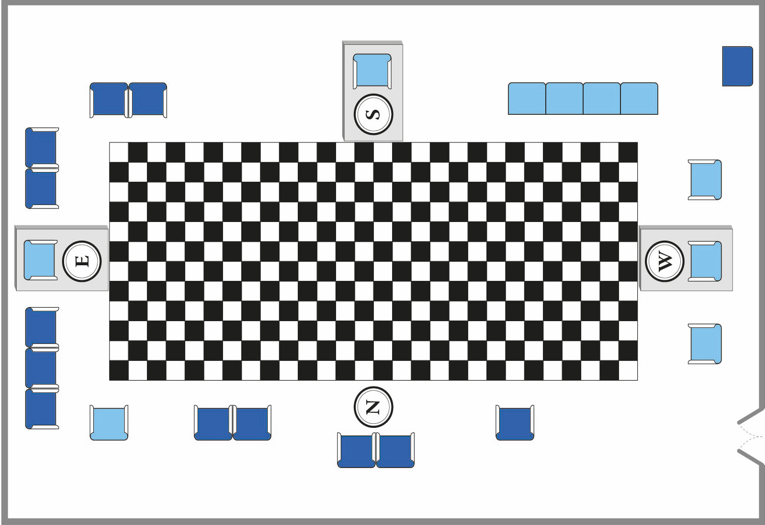
The Final Stop: Festive Board
After the Lodge meeting, members gather for a Festive Board: a formal dinner where they socialise and enjoy fellowship. A dedicated toast is made by members of the Lodge to celebrate the occasion.
Freemasons and Their Attire
Freemasons wear Masonic Aprons as part of each Degree. Their attire typically includes a dark suit, a white shirt, and a Freemason tie. White gloves may also be worn, depending on the Lodge's preferences.
Special Interest Lodges
Freemasonry across the country offers a variety of unique Special Interest Lodges where individuals can connect over shared passions and hobbies. These Lodges provide enriching experiences for social calendars and cater to interests such as sports, military service, and emergency services. A more detailed explanation can be found in the Special Interest Lodges section on our website.
Conclusion
Freemasons and their Lodges uphold timeless traditions of fostering community, personal development, and community engagement. Freemasons continue to make a meaningful impact on society by supporting local organisations, mentoring members, and promoting the values of Integrity, Friendship, Respect, and Service.
Curious About Freemasonry?
Submit an enquiry below and discover how this timeless tradition can inspire personal growth, community connection, and a sense of purpose.
Hear from Lee and Tom about their transformative experiences with Freemasonry.
